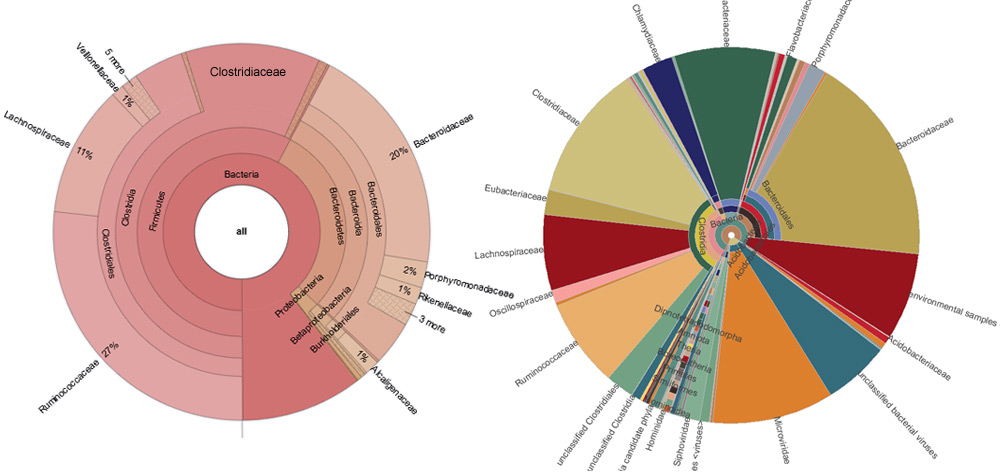Microbial communities play a key role in preserving human health, but their composition and the mechanism by which they do so remains mysterious. Metagenomic sequencing is being used to characterize the microbial communities from 15-18 body sites from at least 250 individuals. This is part of the Human Microbiome initiative with primary goals to determine if there is a core human microbiome, to understand the changes in the human microbiome that can be correlated with human health, and to develop new technological and bioinformatics tools to support these goals. The study demonstrated that two bacterial divisions, Bacteroidetes and Firmicutes, constitute over 90% of the known phylogenetic categories that dominate distal gut bacteria. Using the relative gene frequencies found within the gut these researchers identified 1,244 metagenomic clusters that are critically important for the health of the intestinal tract.
Case study 1.
Healthy adult controls and patients affected by ileocolic Crohn’s disease (data from public databases) were examined for their viral and microbial communities from feces and, in one additional case, present in the intestinal tissue. (left, amplicon based output)
Figure 1. Seqomics Ltd.'s reanalyzation shows more detailed landscape of bacterial and viral families (right, WGS based output, can be uncollapse to species level).

Links
ERR162925.daa (results in MEGAN6 compatible file)
Case study 2.
Alterations of the Fecal Microbiome in Parkinson's Disease: reanalyzing EBI project ERP00426, samples ERR365835, ERR365913, ERR365930, ERR365970, ERR365971
In the course of Parkinson's disease (PD), the enteric nervous system is probably the first structure being affected by alpha-synuclein pathology. Recent research has shown that there is an intense bidirectional interaction between gut microbiota and the brain via diverse pathways. It's speculated that intestinal microbiota may be implicated in PD.
Figure 2. Heatmap comparison of the random selected samples

Links
ERP004264.zip (results in MEGAN6 compatible file)
